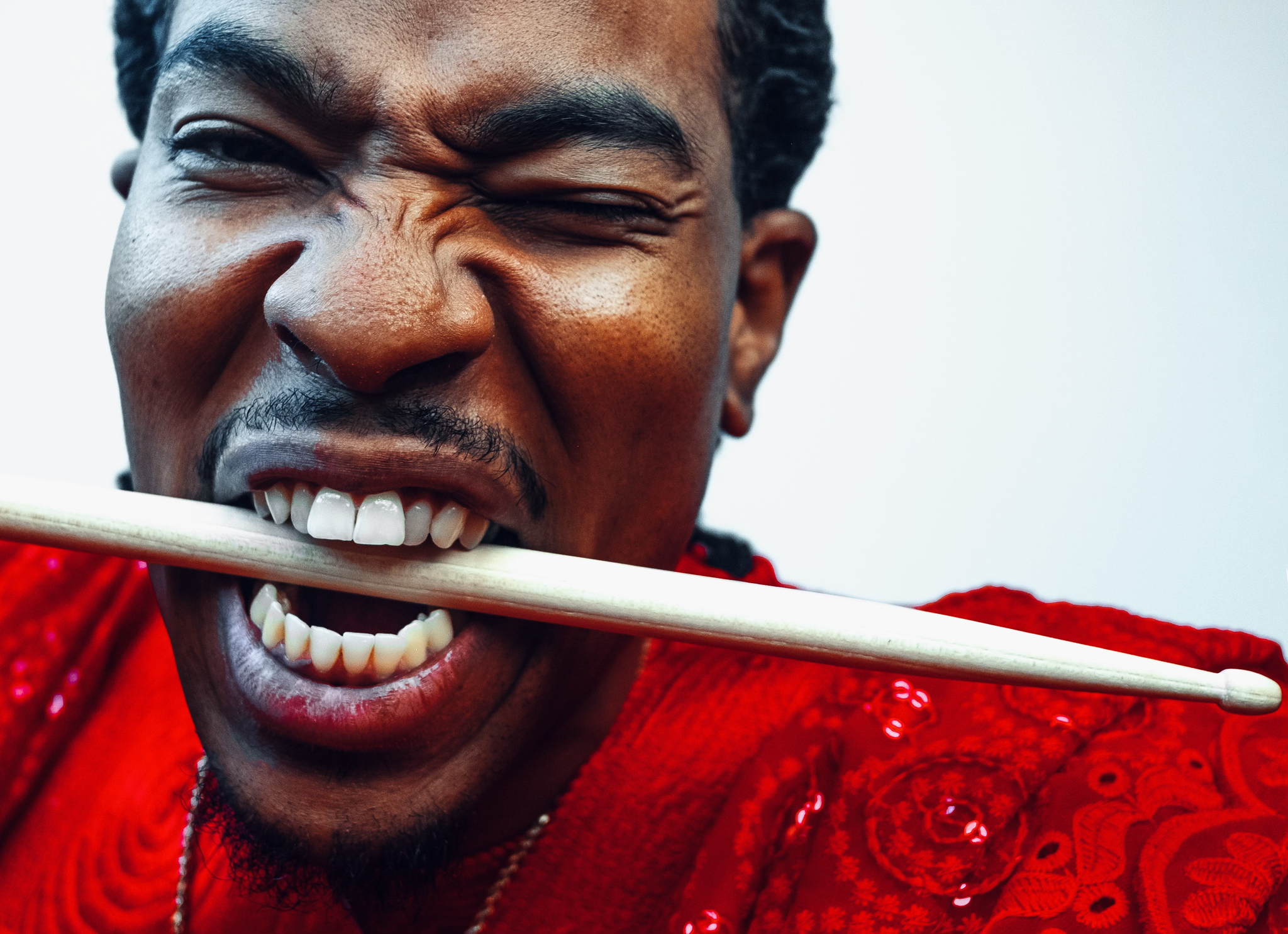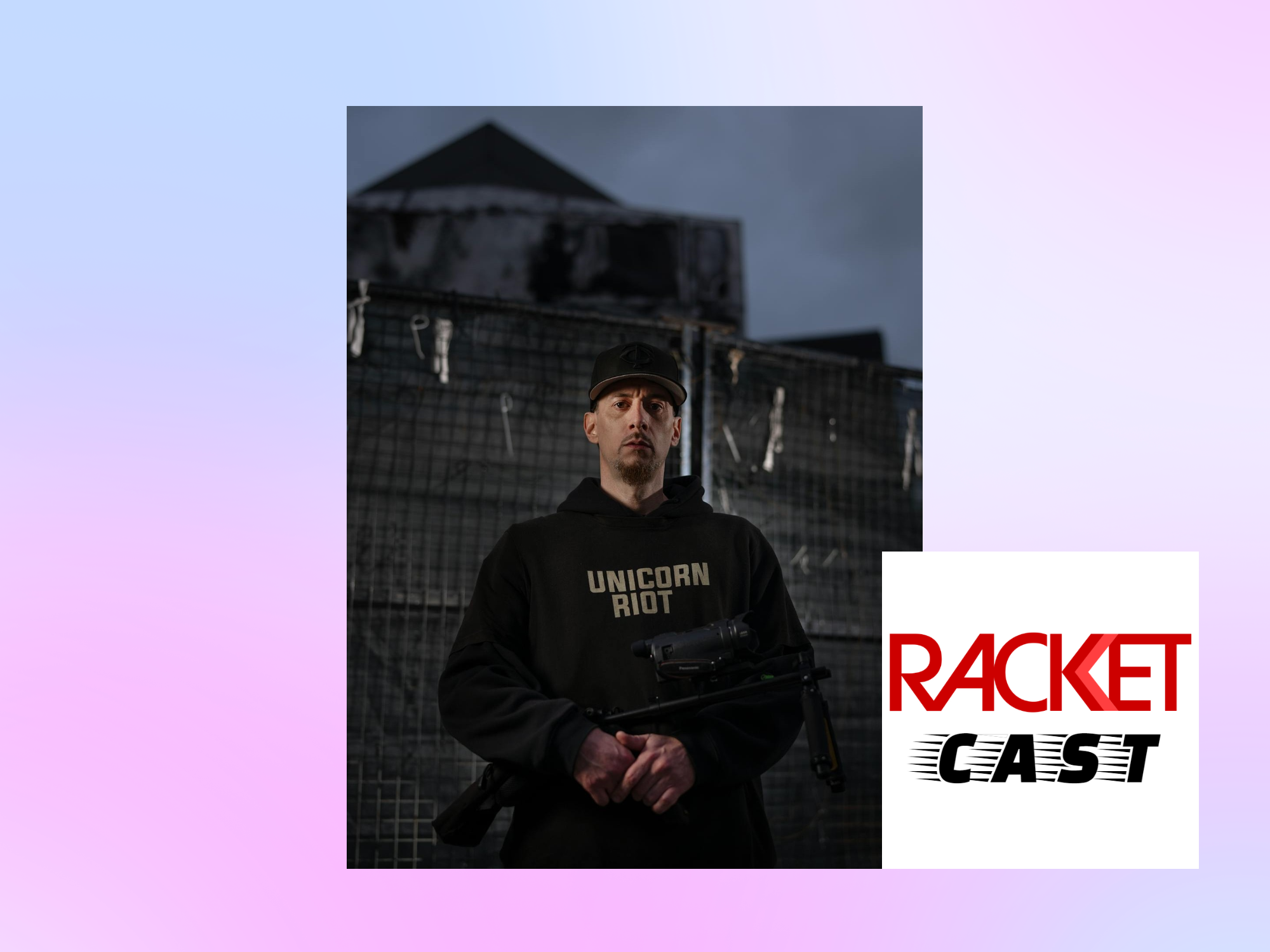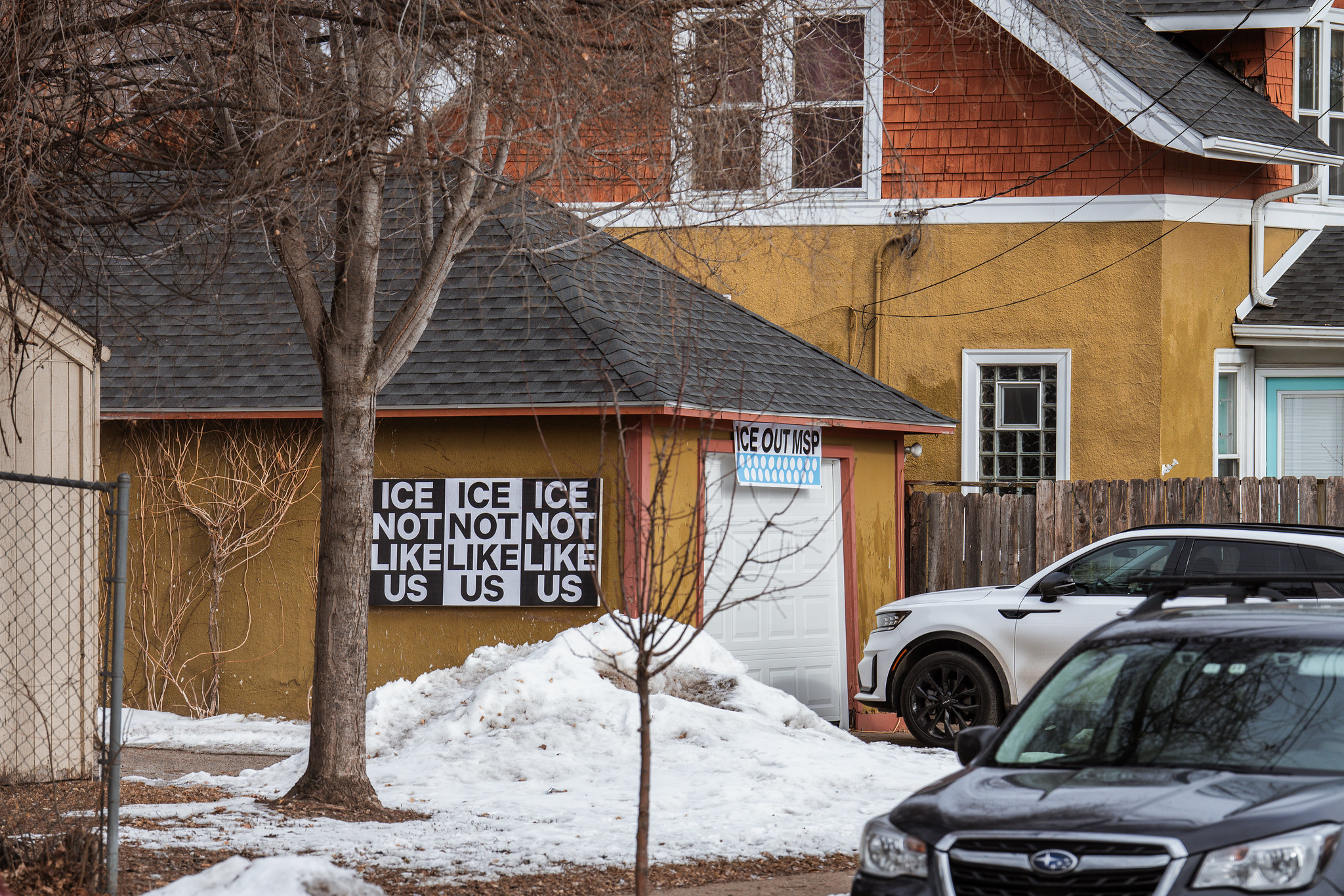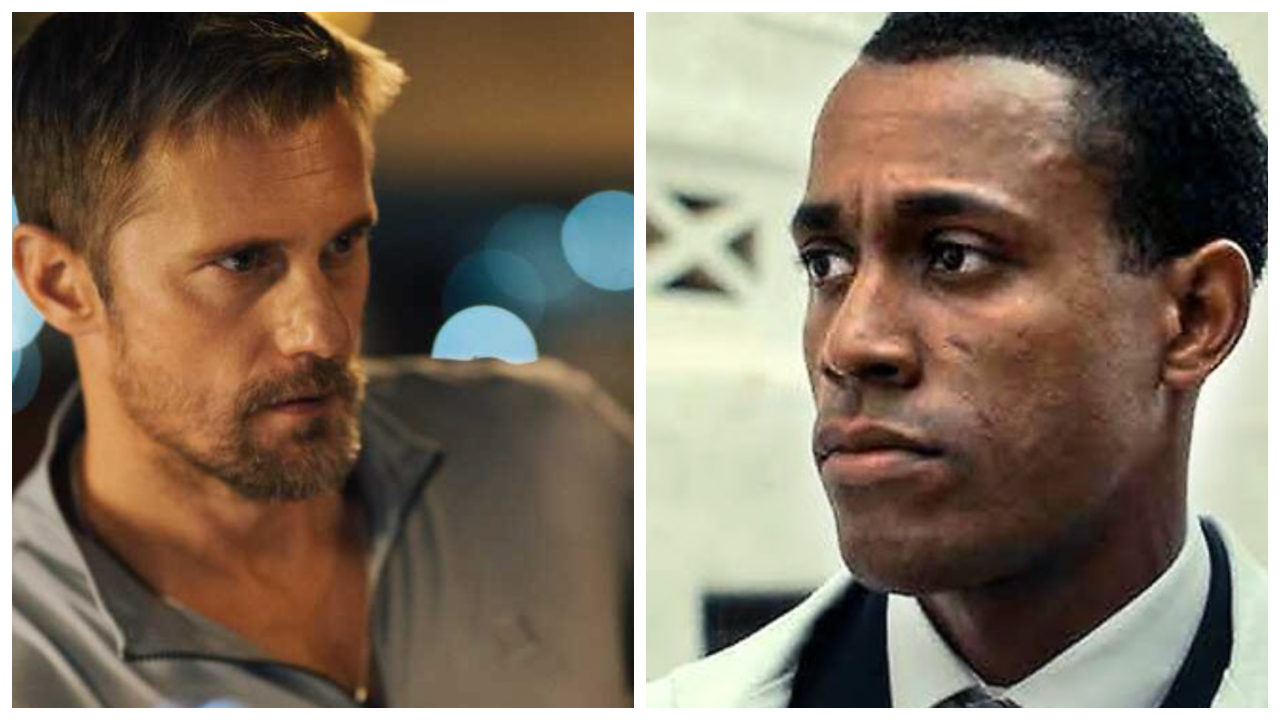“This is the hardest thing to do as a drummer.”
L.A. Buckner is behind the kit at his teaching studio at the MacPhail Center for Music, playing along to the Time’s “Chocolate,” maintaining a spare funk beat, hitting hard, with expert precision and no frills. And though you might not think it’s that difficult, there’s immense discipline necessary to carry such a groove, he explains. To avoid distracting displays of your virtuosity. To bring a band to that ideal place musicians call “the pocket.”
“There's a moment—maybe when you're three minutes deep into it—there's a moment that everybody can acknowledge, where everybody in the room is like…” Buckner says, nodding with silent approval. “Nobody wants it to change. That's what the pocket is. That’s the Minneapolis Sound.”
There are moments of simplicity on Buckner’s new album, Norfside, but more often the 34-year-old Minneapolis drummer sounds happily unconstrained, filling in each empty space in the mix with a flicker of cymbals, a flurry of toms, some percussive announcement or another that he is here. The guy can play and he wants you to know it. The album is an exuberant exercise, brimming with bright melodies and rhythmic fillips flawlessly executed by his band, Big Homie, but at the core is that funk pulse, unwavering, no matter how gloriously Buckner adorns it.
According to Buckner, it’s a gift he developed not primarily in school or in the clubs, but in church, where he’s been drumming since he was a kid growing up in north—“over north,” he corrects me.
“It's not a gig, right? But also it's the gig,” he says of church. “It's the gig that makes you better at every other gig. Before I got to college, I was already playing in front of 100, 200 people every single week. And these other students were just now playing in front of crowds. So church is the accelerant. It's the cheat code. It's the school before school.”
Buckner still drums every Sunday morning at Shiloh Temple International Ministry on West Broadway and in the afternoon at The Wave, where the pastor is Jovonta Patton, a successful gospel performer in his own right. And not every service Buckner has played at has been one of joy: He has drummed at the Shiloh funerals of Daunte Wright, Amir Locke, and Jamar Clark, all young Black men killed by police.
That pervasive threat of death is an inescapable part of Buckner's music.
“It's an outcry as well,” he says of Norfside. “It’s… sometimes it's expressing joy, and, you know, a feel good groove. But it's also expressing some rage and some lament and some ‘Lord, help? What's going on? What's happening?’”
You can hear both moods on the title track; its four different versions serve as a collective centerpiece to Norfside.
“The A section I wrote when I was walking,” Buckner recalls. “It's so Black and churchy and feel-good. The snow was melting and the sun was out in the springtime. I was walking home from working at North High School. And you know, I was feeling so good because I was about to quit.”
But that’s not the whole story, not of north Minneapolis, not of any place.
“I was feeling so good, a melody came to me,” he continues. “I was singing it, and then I switched it in the B section, because even though it's so beautiful right here, sometimes it gets kind of ugly, it gets nasty, it gets funky, right?”
“Norfside” appears in four versions—one instrumental, three with raps, including appearances from veterans Muja Messiah and Maya Marchelle, that namecheck neighborhood faves like Lucille’s peach cobbler as well as eminent North Siders like baller Khald El-Amin, R.L. of Next. longtime activist Spike Moss, and the man Buckner names as his mentor, Stokley Williams of Mint Condition.
Buckner has essentially been working on Norfside for four years, ever since his debut, Big Homie, unexpectedly topped the iTunes jazz charts. Plenty of jazz fusion (to nudge Buckner’s music beneath a stylistic umbrella where it huddles a bit uncomfortably) is smooth but not slick. Norfside is the opposite. Every note lands with meticulous accuracy, and some cuts are composed of more than one hundred tracks; Buckner’s longtime collaborator Jason McGlone stepped aside for Grammy-winning L.A. engineer Jesse Ray Ernster, who’s recorded Doja Cat and Burna Boy and happens to have Minneapolis roots. But this is never easy listening, never content to lay back.
Norfside begins softly with a murmur of filtered keyboard on “1037,” and the band crystalizes as the track progresses, like the sun elbowing its way past an overcast sky. Throughout David Feily’s high-soaring guitar often shares the upper atmosphere with Jovon Williams’s sax, while David Smith’s keys (whether organ synth and piano) blast as percussively as brass sections or sprawl with luxuriance of New Power Generation-era Prince. It’s customary to refer to a rhythm section as playing “underneath” a track, but that hardly feels an appropriate way to describe how Buckner and bassist Ethan Yeshaya lock in, while the drummer’s cousin Jamani Buckner adds additional percussion.
In theological terms, there can be more will to Norfside than grace. The song “Transcendence” feels like it’s working to achieve that state rather than accepting it as a divine gift. But there’s a spirituality to the album all the same.
Given the album’s roots in north Minneapolis, it’s only appropriate that Buckner would celebrate its release at the Capri Theater, the West Broadway institution that’s been a North Side anchor for so long. But he's strayed far from that neighborhood in preparation. This year alone, Buckner has played just about every local club that makes sense. The Dakota and Icehouse. Crooners out in Fridley. The Schell Amphitheater at the State Fair, with Los Angeles tap dancer Sarah Reich.
In each case, he’s an emissary from the North Side—and from Black Minneapolis. When I caught him at the Dakota in early 2023, he encouraged the Black people in attendance to make more noise, to be seen and heard.
“Some of my favorite artists come here and they'll be like, ‘Y'all make some noise.’ And we'd be like…” He pauses. Silence. “We’re timid because, like, we're not used to being completely lit, right? Unless we’re in church—and even in church, we’re reserved in Minnesota.”
“Minnesota is very white," he adds. "Minneapolis is super-diverse, you know. But you're still in Minnesota.”
Buckner himself can’t help but take up space—he’s far above six foot, though he declines to give his exact height (“I usually just say ‘I don’t fit the description,’” he quips), and he comes from a tall family. To give you a sense of how tall his dad must be, Buckner is “Little Arthur.” (Hence the “L.A.”) That family will expand before 2024 ends, as Buckner’s got another big release due later this month: a son. His wife is due on October 31; the couple already has a three-year-old daughter.
For all this, Buckner has still got one spot he really wants to hear his music.
“My music goes hard at the gym,” he says. “Oh my goodness. Now, you hear them playing some crazy metal at the gym. I go to Los Campeones over south and it’s dope. But I'm like, throw Norfside on and they'll definitely get down. They gonna snap.”
L.A. Buckner & Big Homie
Where: Capri Theater, 2027 W. Broadway, Minneapolis
When: 8 p.m. Fri., Oct. 18
Tickets: $25/$35 (suggested donation to Southside Food Share); more info here






